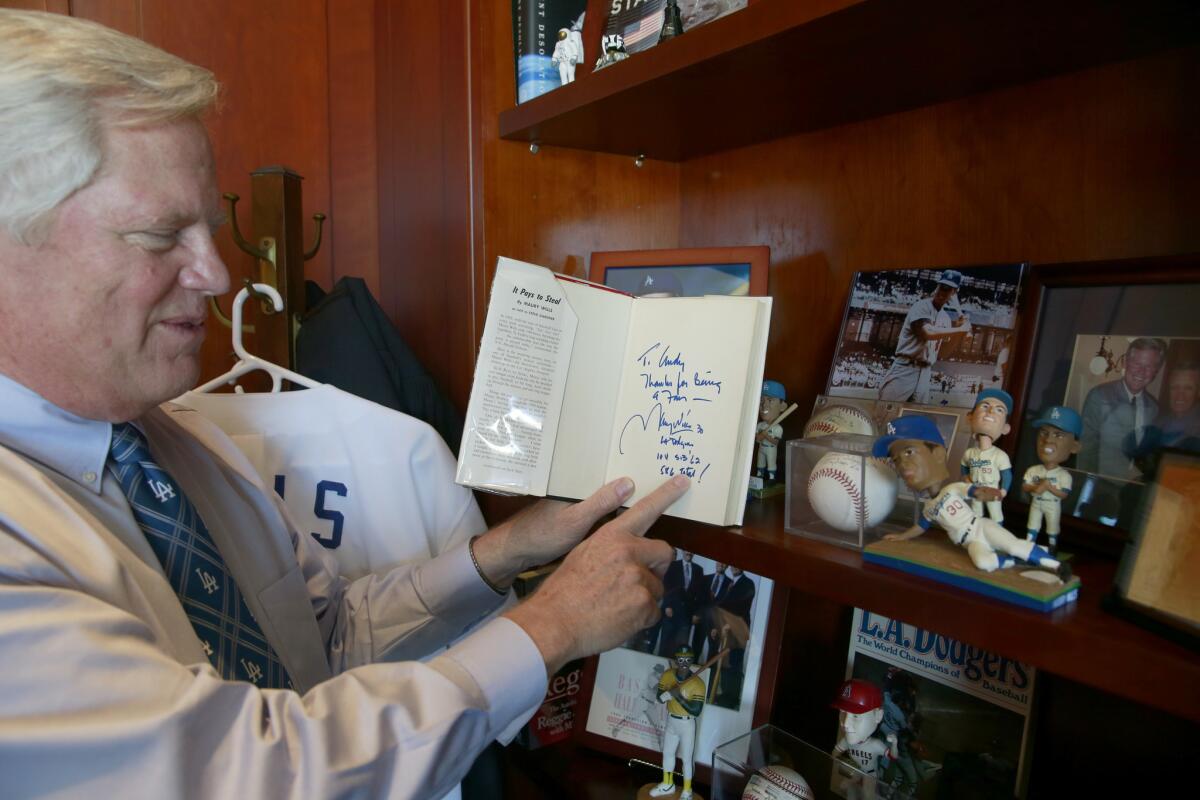Man is convicted of plotting to kill a judge with a wood chipper in a case resembling ‘Fargo’

- Share via
John Walthall could not accept his punishment when 12 jurors found him guilty of bilking $5.5 million from an elderly couple.
Breaking the decorum of federal court, he openly asserted his innocence and protested his conviction after the jury announced its decision. He did nothing wrong, he said, and contended that the panel of his peers had erred.
U.S. District Judge Andrew J. Guilford was not swayed. To Walthall’s defiant pleas, the judge offered a blunt reply: “The jury has spoken.”
More than a year later, prosecutors say, Walthall hatched a campaign of retribution from behind bars, taking aim at the federal prosecutors and FBI agents whose work put him in a Lompoc prison for a 14-year term.
For Guilford, he sought two men to help abduct the jurist, then shred him in a wood chipper, according to court papers.
On Tuesday, a federal jury in Santa Ana convicted Walthall, 60, of soliciting fellow inmates to abduct and kill a federal judge, two prosecutors and two FBI agents, according to Assistant U.S. Atty. Fred Sheppard, the lead prosecutor on the case.
The conviction caps a winding case seemingly ripped from a screenplay, with a con man from La Habra plotting revenge from a prison cell, complete with a wood-chipper slaying that could have been cribbed from “Fargo.”
The case traced to 2007 when Walthall coaxed an Orange County couple to dump millions of dollars into a partnership that would pull gold out of abandoned mines, according to court testimony.
The couple, both in their 80s, took Walthall at his word when he said he had two decades of experience in quarrying gold mines, prosecutors said.
But with the windfall, Walthall paid his son’s film school tuition, bought a hyperbaric oxygen chamber, dumped cash into a string of dubiously named bank accounts and sent alimony to his former wife, prosecutors said.
He was charged in 2009 and managed to draw out his prosecution with delays and a claim of illness, according to court papers. In 2011, he didn’t show up to court and fled to Mesquite, Nev., where he had lived under the alias of Art Langford. In his possession: a handgun, a spate of cellphones and the book “How to Be Invisible.”
Jurors the next year convicted Walthall of four counts of wire fraud and one count of failure to appear in court. Guilford, who was appointed to the bench by President George W. Bush in 2006, imposed a 168-month prison term.
“This sentence finally delivers justice to the victims and, hopefully, serves as a cautionary tale to prospective investors,” said Steven Martinez, then the assistant director at the FBI’s field office in Los Angeles.
Once behind bars, the government contended, Walthall prepared a detailed plan of vengeance and eventually approached two inmates, Antonio Rodriguez and Crisanto Diego Trejo-Ortiz, to realize his retribution.
Walthall issued step-by-step instructions, prosecutors said. Hired hands would assault and murder the team of prosecutors and FBI agents who won a conviction against Walthall, according to court papers. Guilford, a former president of the state bar, would be kidnapped and forced to exonerate Walthall. Next, the judge would be tortured with the wood chipper and ground to a pulp by the blades.
In exchange, Walthall would pay up to $1 million per victim, according to court papers.
But the two inmates’ families notified the FBI, and Walthall laid out his plans to a co-conspirator who was actually an undercover agent, according to court papers.
The defense, led by attorney Timothy Scott, countered that the case relied on two paid informants who entrapped and manipulated Walthall. Scott contended that the informants were motivated by a reduction in their own prison sentences and that Walthall suffers from mental illness.
“These two got a paranoid, delusional man to say paranoid, delusional things so that they could be seen as heroes,” Scott said during his opening arguments, according to the Orange County Register. “They have made a career out of entrapping others in criminal activity and selling it to the government for their own rewards.”
But psychologists from the Bureau of Prisons examined Walthall and did not find signs that he suffered from delusional disorder or paranoid schizophrenia, prosecutors said.
The case was dogged by questions of conflict of interest. Prosecutors noted that the federal public defender’s office did not recuse itself since the spouse of one of Walthall’s targets worked in the agency’s Santa Ana office. Walthall’s attorneys, meanwhile, unsuccessfully sought to disqualify the entire bench of federal judges in the Central District of California, arguing that a case about the grisly murder plot of a colleague could pose the appearance of prejudice.
Federal prosecutors from the neighboring district based in San Diego handled the case, which was ultimately tried in Santa Ana before U.S. District Judge Cormac J. Carney.
The judge is scheduled to sentence Walthall on Oct. 11. He faces a maximum penalty of 20 years in federal prison.
For more news in California, follow @MattHjourno.
ALSO
He admitted to shooting his decades-long friend in the back of his head — as a favor, he says
California father dies in failed attempt to save his daughter, 6, from drowning in Hawaii
Man’s pregnant wife attacked after ex-girlfriend allegedly impersonates her with ‘rape fantasy’ ad
UPDATES:
6:10 p.m.: This article was updated with additional details.
This article was originally published at 5:35 a.m.
More to Read
Sign up for Essential California
The most important California stories and recommendations in your inbox every morning.
You may occasionally receive promotional content from the Los Angeles Times.










